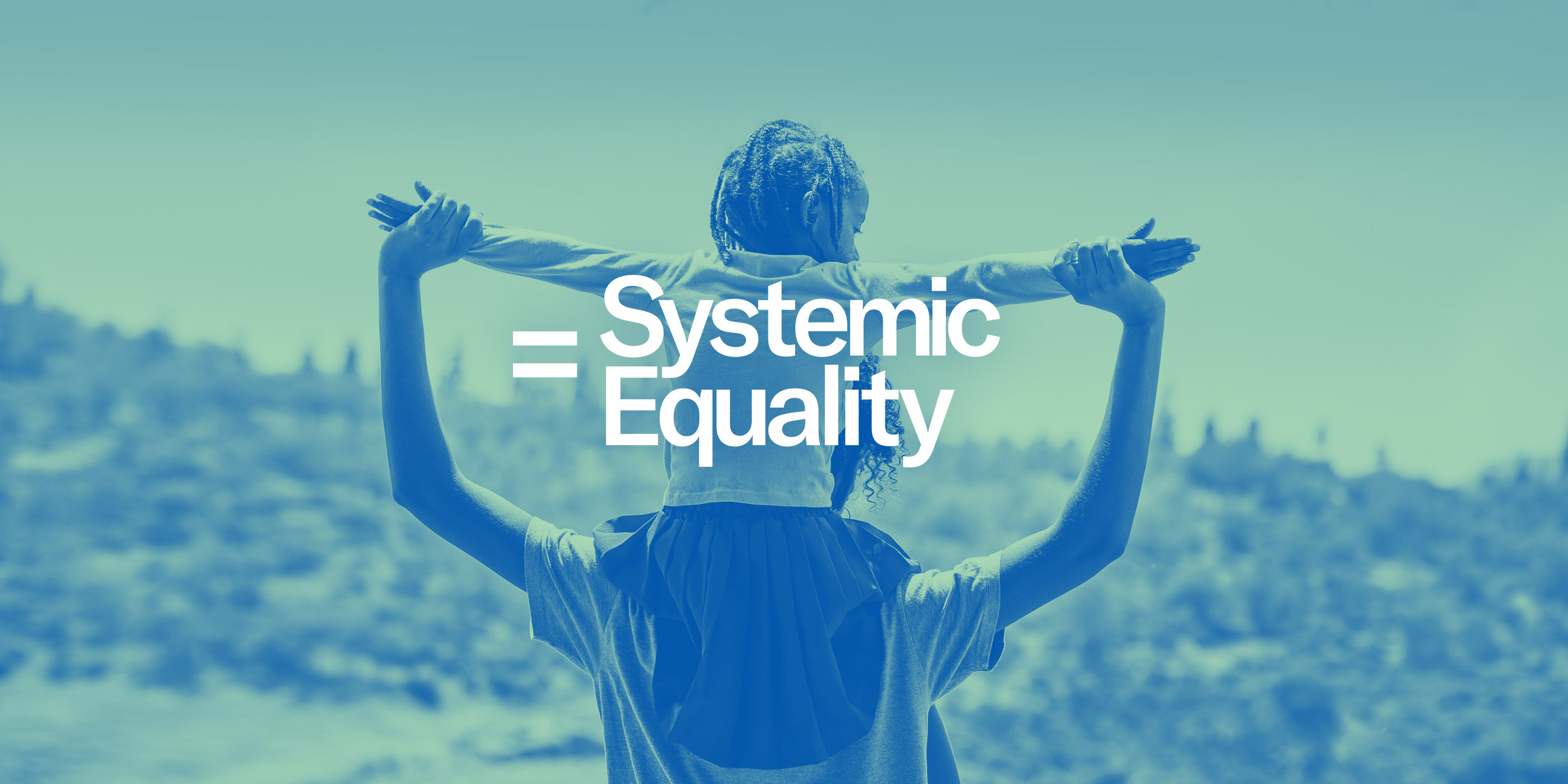
Systemic Equality: Equal Access, Better Futures
Systemic Equality is A Racial Justice Agenda
Since our nation’s founding, discriminatory policies and laws have created an unequal system in which Black communities have had their civil rights and liberties denied and have been systematically locked out of opportunities in education, housing, employment and more.
Through our Systemic Equality agenda, the ACLU will use nationwide litigation, advocacy, and public education to advance laws and policies rooted in racial equity and end discriminatory policies, laws, and practices that have an outsized impact on Black communities.
The ACLU will also continue to evolve our own culture, systems, and processes to drive progress toward our internal racial justice commitments, including by committing sustained recruitment and hiring efforts to recruit more diverse talent pools, developing initiatives to promote and retain Black leadership, engaging Black-owned and Black-led businesses, and more.
When we have full and equal access to education, jobs, housing, voting rights, and more, better futures are possible.
A Spotlight on Fair Housing
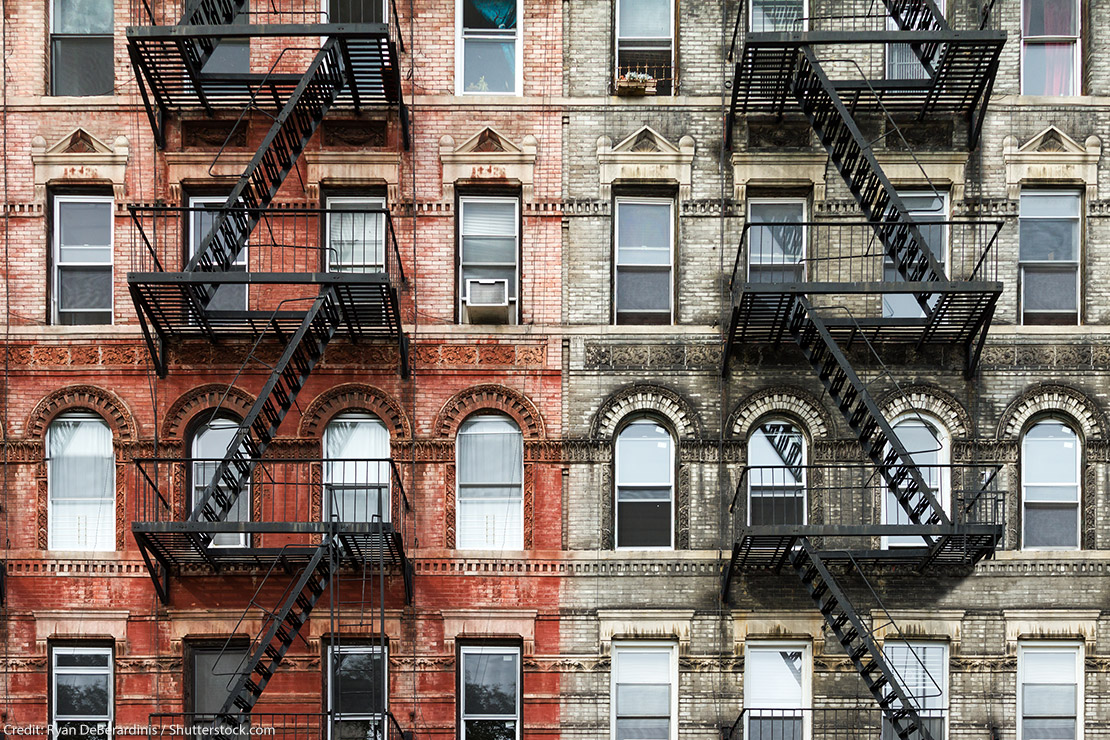
Why Fair Housing is Key to Systemic Equality
Here’s how discrimination continues to impact access to housing today, and why we’re fighting to ensure all people have equal access.
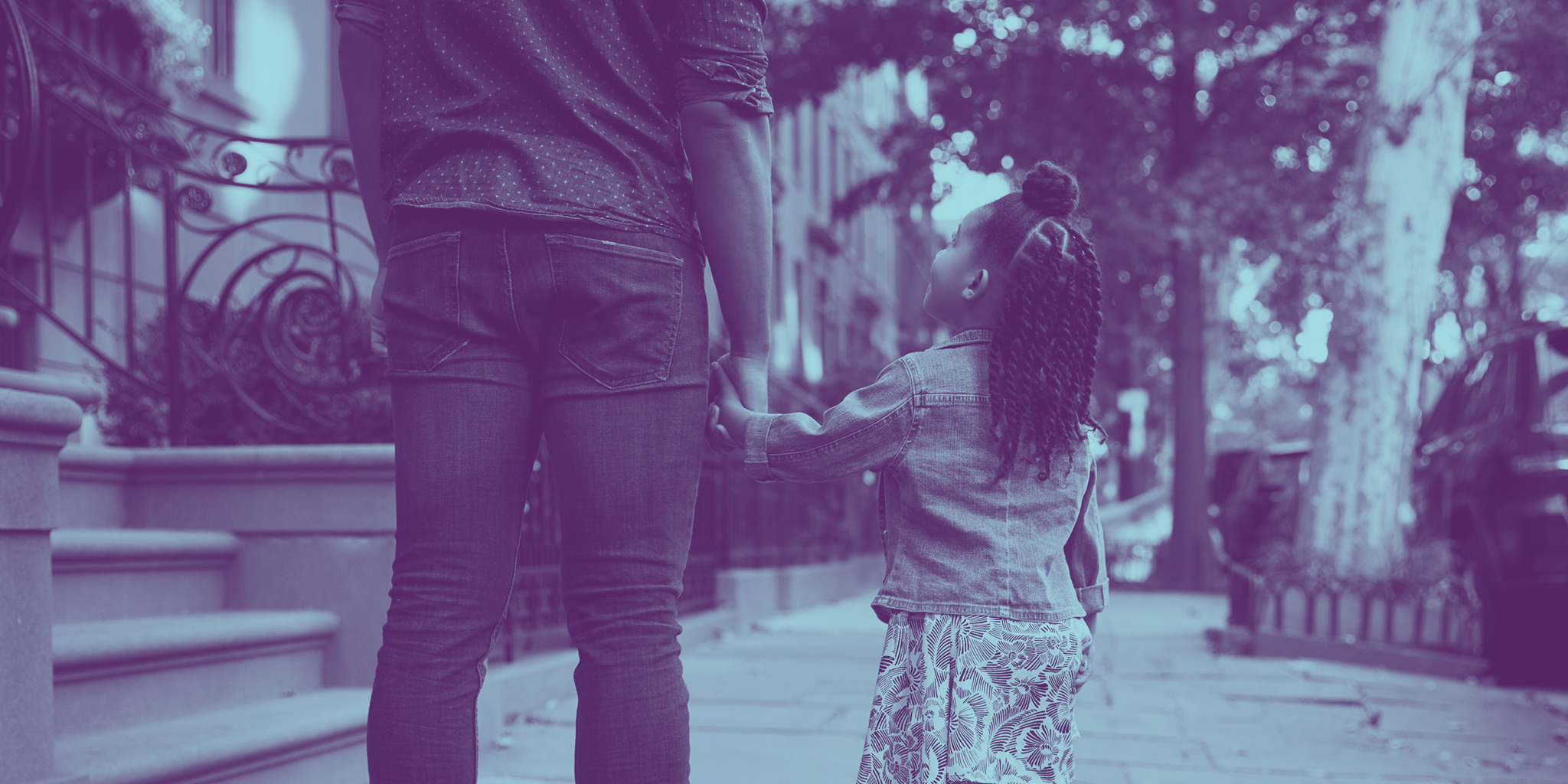
Fair Housing
Our goal is to expand access to stable, affordable housing.
Historic and ongoing segregation and discrimination has prevented marginalized groups — particularly Black communities — from accessing safe, affordable housing and home ownership.
Equal access to housing is a civil right. We must work to reduce mass evictions and barriers to housing opportunities that disproportionately impact Black women renters, and restore important housing protections to expand equal access to housing opportunities for everyone.
Everyone deserves equal access to safe and stable housing.
Our fair housing work includes:
- Challenging Mass Evictions and Barriers to Housing Opportunities: Black women and their families make up the demographic group most likely to face eviction in the United States, resulting in a myriad of harms and reinforcing segregation. Our multi-part campaign includes securing the right to counsel in eviction cases, prohibiting the consideration of prior eviction records in tenant screening, and more.
- Advocating for the Right to Representation: We are engaged in right to representation campaigns in Delaware and New Jersey to ensure all people facing eviction have the ability to assert their rights in court.
Historic and ongoing segregation and discrimination has prevented marginalized groups — particularly Black communities — from accessing safe, affordable housing and home ownership.
Equal access to housing is a civil right. We must work to reduce mass evictions and barriers to housing opportunities that disproportionately impact Black women renters, and restore important housing protections to expand equal access to housing opportunities for everyone.
Everyone deserves equal access to safe and stable housing.
Our fair housing work includes:
- Challenging Mass Evictions and Barriers to Housing Opportunities: Black women and their families make up the demographic group most likely to face eviction in the United States, resulting in a myriad of harms and reinforcing segregation. Our multi-part campaign includes securing the right to counsel in eviction cases, prohibiting the consideration of prior eviction records in tenant screening, and more.
- Advocating for the Right to Representation: We are engaged in right to representation campaigns in Delaware and New Jersey to ensure all people facing eviction have the ability to assert their rights in court.
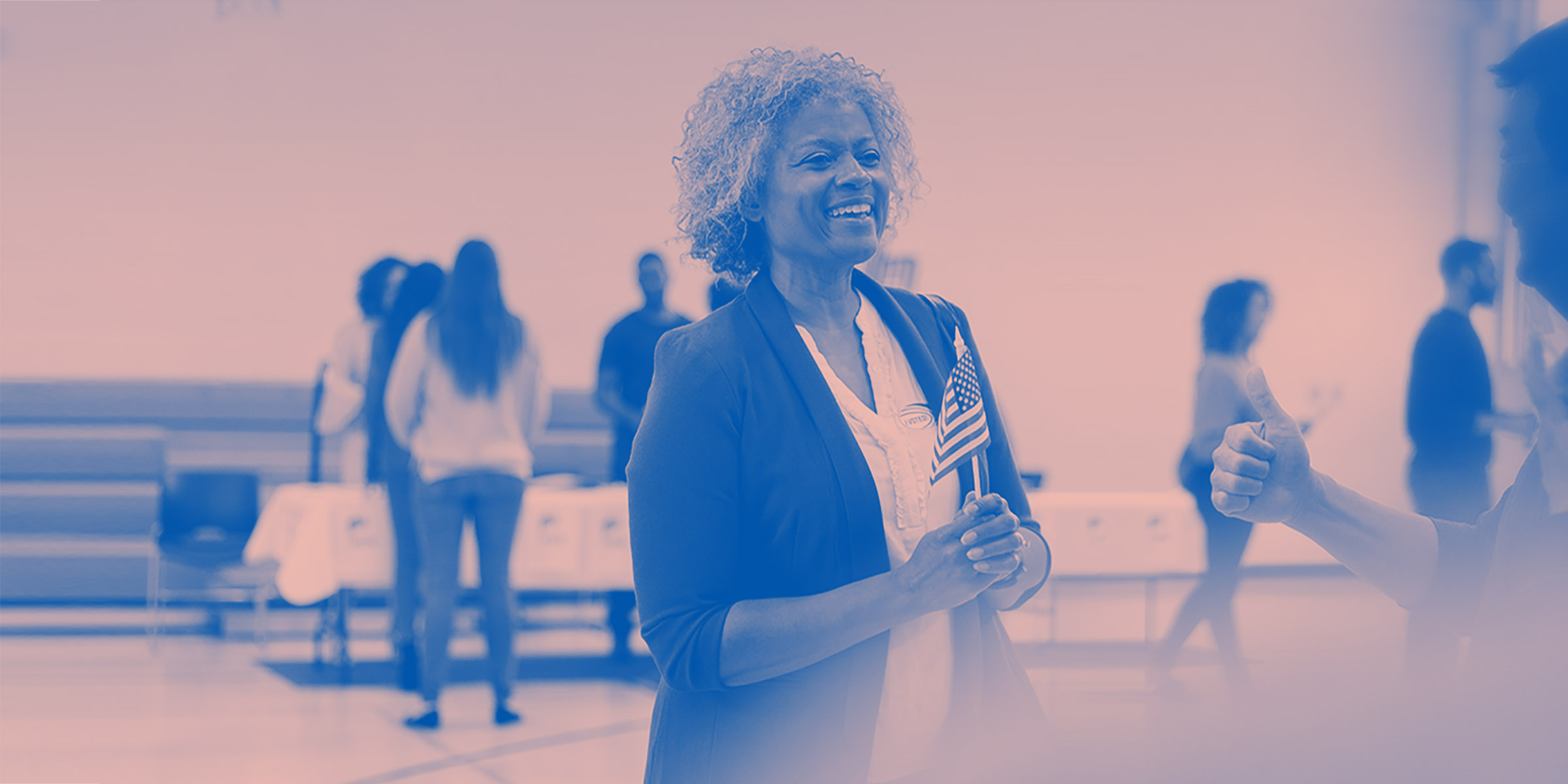
Voting Rights
Our goal is to expand voting access for and build the political power of Black communities.
Black people and communities of color, in particular, have faced numerous obstacles to meaningful participation in the political process, including the redistricting process. The Voting Rights Act of 1965 prohibits the drawing of district lines that dilute the voting strength of communities of color. When Black people and communities of color are minimized through the redistricting process, they are not adequately represented in our democracy, perpetuating the systemic inequality many voters of colors already face.
Redistricting plans should fairly reflect the political strength of communities of color. As data from the last Census confirms, nearly all of the country’s growth over the past decade is attributable to the growth in our nation’s communities of color. Fair maps and voting policies must adequately reflect that reality.
The right to vote should be equally accessible to everyone.
Our voting rights work includes:
- Equal and Fair Political Representation: As part of our ongoing work to ensure legislatures reflect their constituencies and address the longstanding underrepresentation and disempowerment of Black communities, we will advocate for fair voting district maps in six priority states in the South to obtain more equal representation for Black voters.
Black people and communities of color, in particular, have faced numerous obstacles to meaningful participation in the political process, including the redistricting process. The Voting Rights Act of 1965 prohibits the drawing of district lines that dilute the voting strength of communities of color. When Black people and communities of color are minimized through the redistricting process, they are not adequately represented in our democracy, perpetuating the systemic inequality many voters of colors already face.
Redistricting plans should fairly reflect the political strength of communities of color. As data from the last Census confirms, nearly all of the country’s growth over the past decade is attributable to the growth in our nation’s communities of color. Fair maps and voting policies must adequately reflect that reality.
The right to vote should be equally accessible to everyone.
Our voting rights work includes:
- Equal and Fair Political Representation: As part of our ongoing work to ensure legislatures reflect their constituencies and address the longstanding underrepresentation and disempowerment of Black communities, we will advocate for fair voting district maps in six priority states in the South to obtain more equal representation for Black voters.

Criminal Justice
Our goal is to improve public safety by investing in Black communities instead of punishment.
Investing in punishment while undermining what we need for equal and thriving communities has resulted in overcriminalization and the unjust and unequal treatment of our communities — especially Black communities.
We improve public safety by addressing root causes of crime, such as poverty and lack of opportunity, while also focusing on strengthening communities through investments in promising solutions. These include increasing access to affordable housing, jobs, education, health care, and mental health and substance use services in our communities. At the same time, we must work to reduce the number of people incarcerated, surveilled, and criminalized by law enforcement and in the courts. We must challenge dehumanizing conditions in jails and prisons and ensure that people returning to our communities are equipped for success. We must challenge cruel, extreme, and discriminatory punishments such as the death penalty and life without parole. We must work to erect meaningful constitutional guardrails on law enforcement — including jail and prison administrators.
We have the power to choose and to invest in real solutions that increase equality, justice, and safety for all of us.
Our criminal justice work includes:
- Challenging Policing: Part of a larger campaign to reimagine community safety that uses litigation and integrated advocacy to challenge racially-biased policing practices and advance community-based and non-punitive approaches to public safety.
- Shrinking the Geography of Mass Incarceration: An integrated effort, our litigation and advocacy will focus on developing legal challenges to stop funding for the expansion or construction of prisons, jails, and detention centers.
- Ending Racially Discriminatory Jury Selection in the Death Penalty: The jury selection process in death penalty trials, known as “death qualification,” removes otherwise qualified jurors from serving in capital trials based on their opposition to the death penalty. The process discriminates against Black jurors, who are disproportionately opposed to the death penalty. The history of the death penalty in America is inextricably tied to the history of lynching, and the opposition to the death penalty within the Black community is rooted in that history. This disenfranchisement from jury service is a fresh injustice compounding the injustice of racial terror and violence.
Investing in punishment while undermining what we need for equal and thriving communities has resulted in overcriminalization and the unjust and unequal treatment of our communities — especially Black communities.
We improve public safety by addressing root causes of crime, such as poverty and lack of opportunity, while also focusing on strengthening communities through investments in promising solutions. These include increasing access to affordable housing, jobs, education, health care, and mental health and substance use services in our communities. At the same time, we must work to reduce the number of people incarcerated, surveilled, and criminalized by law enforcement and in the courts. We must challenge dehumanizing conditions in jails and prisons and ensure that people returning to our communities are equipped for success. We must challenge cruel, extreme, and discriminatory punishments such as the death penalty and life without parole. We must work to erect meaningful constitutional guardrails on law enforcement — including jail and prison administrators.
We have the power to choose and to invest in real solutions that increase equality, justice, and safety for all of us.
Our criminal justice work includes:
- Challenging Policing: Part of a larger campaign to reimagine community safety that uses litigation and integrated advocacy to challenge racially-biased policing practices and advance community-based and non-punitive approaches to public safety.
- Shrinking the Geography of Mass Incarceration: An integrated effort, our litigation and advocacy will focus on developing legal challenges to stop funding for the expansion or construction of prisons, jails, and detention centers.
- Ending Racially Discriminatory Jury Selection in the Death Penalty: The jury selection process in death penalty trials, known as “death qualification,” removes otherwise qualified jurors from serving in capital trials based on their opposition to the death penalty. The process discriminates against Black jurors, who are disproportionately opposed to the death penalty. The history of the death penalty in America is inextricably tied to the history of lynching, and the opposition to the death penalty within the Black community is rooted in that history. This disenfranchisement from jury service is a fresh injustice compounding the injustice of racial terror and violence.

Economic Justice
Our goal is to reduce the racial wealth gap.
Systemic inequities and barriers keep people — particularly people of color — from accessing the mainstays of economic life; including education, employment, and homeownership; resulting in racial disparities in wealth and income. These disparities result from a combination of ongoing discrimination, structural inequality, and biases across our institutions, and emerge in new forms of technology, including through artificial intelligence, that influence nearly every facet of life.
Through litigation and advocacy, we aim to remedy deeply entrenched sources of inequality and ensure that access to opportunity and the ability to build wealth is available to all.
All people should have an equal opportunity to earn a living, find a home, and get an education.
Our economic justice work includes:
- Exposing Discriminatory Hiring and Lending Tech: Leveraging research and integrated advocacy, we will promote a more equitable approach to AI policy and expose and stop the use of biased, discriminatory hiring and lending technologies that perpetuate hiring and employment discrimination.
Systemic inequities and barriers keep people — particularly people of color — from accessing the mainstays of economic life; including education, employment, and homeownership; resulting in racial disparities in wealth and income. These disparities result from a combination of ongoing discrimination, structural inequality, and biases across our institutions, and emerge in new forms of technology, including through artificial intelligence, that influence nearly every facet of life.
Through litigation and advocacy, we aim to remedy deeply entrenched sources of inequality and ensure that access to opportunity and the ability to build wealth is available to all.
All people should have an equal opportunity to earn a living, find a home, and get an education.
Our economic justice work includes:
- Exposing Discriminatory Hiring and Lending Tech: Leveraging research and integrated advocacy, we will promote a more equitable approach to AI policy and expose and stop the use of biased, discriminatory hiring and lending technologies that perpetuate hiring and employment discrimination.

Education Equity
Our goal is to ensure all students have equal access to high quality education and safe schools.
All students have a right to an equal education, but students of color (particularly Black students), students with disabilities, and low-income youth have historically been marginalized, criminalized, and under-resourced by the public school system.
We will challenge unconstitutional disciplinary policies that disparately target Black students and infringe on their right to a safe learning environment. We will also support race conscious admission policies to increase access to underrepresented groups who face systemic barriers to higher education.
All students deserve equal access to a high quality education, a safe learning environment, and a diverse student body that enriches the educational experiences of all students.
Our education equity work includes:
- Defending Race Conscious Admissions: The American Civil Liberties Union, the ACLU of Massachusetts, and the ACLU of North Carolina filed an amicus brief urging the Supreme Court to uphold universities’ ability to consider race in college admissions.
All students have a right to an equal education, but students of color (particularly Black students), students with disabilities, and low-income youth have historically been marginalized, criminalized, and under-resourced by the public school system.
We will challenge unconstitutional disciplinary policies that disparately target Black students and infringe on their right to a safe learning environment. We will also support race conscious admission policies to increase access to underrepresented groups who face systemic barriers to higher education.
All students deserve equal access to a high quality education, a safe learning environment, and a diverse student body that enriches the educational experiences of all students.
Our education equity work includes:
- Defending Race Conscious Admissions: The American Civil Liberties Union, the ACLU of Massachusetts, and the ACLU of North Carolina filed an amicus brief urging the Supreme Court to uphold universities’ ability to consider race in college admissions.
How Can We Achieve Systemic Equality?
ACLU Deputy Legal Director Yasmin Cader explains what needs to be done in the fight against systemic racial discrimination in order to create a world in which everyone’s civil rights and liberties are recognized.
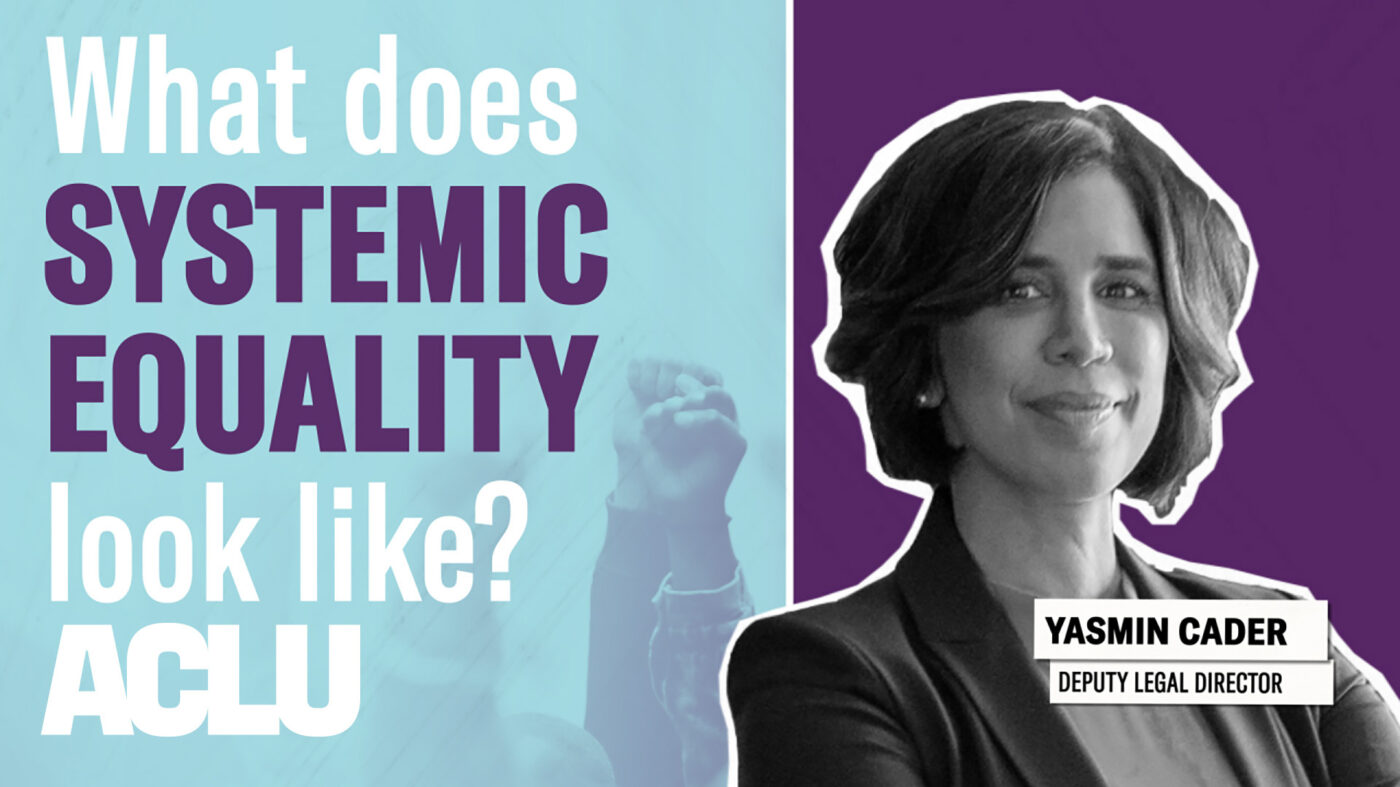
Learn More About the Issues on This Page
Related Content
-
PodcastDec 2024

Capital Punishment
Can Commuting the Row Be Biden's Real Legacy? Herman Lindsey and Cassy Stubbs Discuss With W. Kamau BellCan Commuting the Row Be Biden's Real Legacy? Herman Lindsey and Cassy Stubbs Discuss With W. Kamau Bell
By: ACLU -
Press ReleaseDec 2024

Capital Punishment
Over 130 Civil and Human Rights Organizations Call on President Biden to Commute Federal Death SentencesOver 130 Civil and Human Rights Organizations Call on President Biden to Commute Federal Death Sentences
WASHINGTON – More than 130 civil and human rights organizations, led by the American Civil Liberties Union, Amnesty International USA, Southern Poverty Law Center, and the NAACP Legal Defense Fund, issued a letter to President Biden today, urging him to commute the sentences of people on federal death row before he leaves office. The letter highlights the moral and legal failings of the death penalty in the United States and stresses the urgency of action to prevent the potential resurgence of federal executions under an incoming Trump administration. The groups call on Biden to fulfill his campaign promise to address the irrevocably broken federal death penalty and to “bring America into a new era of moral leadership.” President Biden was the first presidential candidate to openly oppose the death penalty, and his administration issued a moratorium on federal executions. With 40 men still on death row, however, the letter emphasizes that commuting federal death sentences is the only irreversible action President Biden can take to prevent the incoming administration from attempting another execution spree. "President Biden has an opportunity to make history by addressing the racist and unjust federal death penalty system and keep an early campaign promise he made to the American people,” said Anthony D. Romero, executive director of the ACLU. “Commuting the sentences of those on death row would help end the death penalty once and for all and prevent a second execution spree by President Trump. Trump’s first act of political theater ended in the execution of 13 people. President Biden shouldn’t allow Trump to repeat that travesty." In Trump’s final months in office, his administration executed 13 people in rapid succession, more than any administration in over 120 years. The Trump administration also amended the federal execution protocol which opened the door to more brutal methods of execution, including death by firing squad, electrocution, and nitrogen hypoxia, an untested and torturous method. Below are additional comments from: Paul O’Brien, executive director, Amnesty International USA: “President-elect Trump has promised to restart and accelerate the federal death machine, just as he did in his last administration. In the span of only 6 months, the Trump administration executed more people than the 10 previous presidential administrations combined. The executions carried out in his first term demonstrated to the world how the federal death penalty is fundamentally broken and that this ultimate cruel, inhuman and degrading punishment should be abolished forever. We should take Trump at his word when he says he plans to repeat this horrific killing spree, and Biden must do what he can now to prevent it.” Janai Nelson, president and director-counsel, Legal Defense Fund: “Since our founding, LDF has been unwavering in its fight to abolish the death penalty and eliminate racial discrimination from our criminal legal system. The death penalty is rooted in slavery, lynchings, and white vigilantism and historically weaponized against people of color. From the Groveland Four in 1949 to many capital cases today, Black people are disproportionately impacted by the ultimate punishment. Commuting the sentences of the 40 individuals on federal death row is an unprecedented opportunity for President Biden to cement his commitment to remedying injustice by exercising executive clemency.” Margaret Huang, president and CEO, The Southern Poverty Law Center: “The death penalty is rooted in a deep history of racialized violence. To this day, race is still the biggest predictor of who gets sentenced to death, with Black people accounting for nearly 40% of those on federal death row, despite representing less than 12% of the adult population. And fully 70% of those on federal death row are from the South. Our nation, and particularly the communities that we serve in the Deep South, cannot achieve true racial justice while the death penalty remains in practice.” Joia Erin Thornton, executive director, FLOCC (Faith Leaders of Color Coalition): “President Biden should commute all federal death sentences because doing so would acknowledge and help redress the racial bias built into the federal death penalty system, allow government resources to be redirected to policies that actually make our communities safer, and allow the families of victims and incarcerated persons to focus on healing instead of living in legal limbo.” This letter is one of more than a dozen letters released today from hundreds of stakeholders from across the political and faith spectrums calling on President Biden to commute all federal death sentences, including Black pastors, former corrections officials, business leaders, current and former prosecutors, families who have lost loved ones to homicide, mental health advocates, and many more. All of the letters can be found here. -
News & CommentaryNov 2024

Capital Punishment
Biden Must Use Final Months in Office to Commute Federal Death SentencesBiden Must Use Final Months in Office to Commute Federal Death Sentences
In our series on how Biden can use the lame duck period to secure civil liberties and civil rights, we examine how Biden can combat President-elect Trump’s plans to greatly expand the death penalty and execute every person on the federal row.By: ACLU -
Press ReleaseNov 2024

Capital Punishment
National Security
Court Rules Signed Plea Agreements with Three of the 9/11 Defendants Are Valid and Must Go Into EffectCourt Rules Signed Plea Agreements with Three of the 9/11 Defendants Are Valid and Must Go Into Effect
WASHINGTON — A U.S. military court has agreed that the plea agreement reached with ACLU client Khalid Shaikh Mohammad back in August is valid and must go into effect. The judge’s decision comes three months after Defense Secretary Lloyd J. Austin III, overruled prosecutors and Brig. General Susan Escallier, the Guantánamo military commission’s convening authority, and revoked the signed plea agreement. In exchange for a guilty plea to all counts, the U.S. government agreed to life imprisonment instead of the death penalty for Khalid Shaikh Mohammad and two other defendants. The military judge’s decision follows litigation by the three defendants to enforce their agreement with the government. The negotiated plea process allows family members to get answers to long-held questions about the attacks directly from the defendants and, at sentencing, make statements about the tragic impact on them and their loved ones. The military judge has said he will next schedule a hearing for the guilty pleas to be entered. Since 2008, through its John Adams Project, the ACLU has provided capital defense support for detainees facing the death penalty in the military commissions, spending over $12.5 million to provide experienced capital defenders, mitigation specialists, investigators, and experts to the under-resourced military defense teams. Our efforts exposed unfairness, secrecy, and the ongoing role of torture in the Guantanamo military commissions, making clear that the commissions are a complete failure. The following is a statement from Anthony D. Romero, executive director of the ACLU: “By reinstating the plea agreements, Col. Matthew N. McCall rightly recognizes that Defense Secretary Austin stepped out of bounds. We are finally back at the only practical solution after nearly two decades of litigation. “The government's decision to settle for life imprisonment instead of seeking the death penalty in the case of Khalid Sheikh Mohammed was always the right call. For too long, the U.S. has repeatedly defended its use of torture and unconstitutional military tribunals at Guantánamo Bay. As a nation, we must move forward with the plea process and sentencing hearing that is intended to give victim family members answers to their questions. They deserve transparency and finality about the events that claimed their loved ones. “This plea agreement further underscores the fact that the death penalty is out of step with the fundamental values of our democratic system. It is inhumane, inequitable, and unjust. “We also urge the U.S. government to quickly relocate the men cleared for transfer, and finally end all indefinite detentions and unfair trials at Guantánamo.”